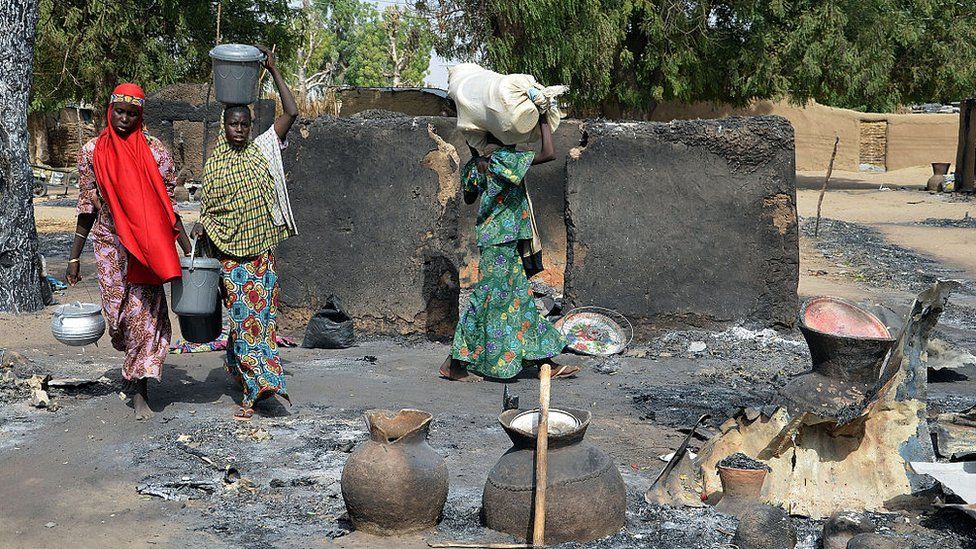Boko Haram crisis: Nigerian tycoon Dangote donates $10m in aid
- Published

Africa's richest man, Nigerian business tycoon Aliko Dangote, has pledged $10m (£7m) to help families affected by Boko Haram's seven-year insurgency.
It is one of the biggest donations by a businessman towards easing a humanitarian crisis which has left more than two million people homeless.
Some Nigerian businessmen have been accused of failing to fulfil pledges made to the government last year.
However, an official told the BBC Mr Dangote had kept previous promises.
Nigeria's government is urging people to return to areas recaptured from the militant Islamist group.
A leaked World Bank report estimates that about 30% of 3.2 million private homes have been destroyed in the state, which has been worst-affected by the insurgency in north-eastern Nigeria.
Prominent Nigerian cleric Bishop Mike Bamidele said that churches had also been destroyed, and the government should help rebuild them, Nigeria's privately owned This Day newspaper reports.
Mr Dangote, who has an estimated fortune of $17bn, announced the donation while visiting refugee camps in Borno state with its governor Kashim Shettima on Monday.
Welcoming the donation, Mr Shettima said: "Our people are in dire straits and there is only so much that we can do with our limited resources."
Mr Dangote said his main priority was to help curb malnutrition and hunger in the camps, and to then create education and job opportunities for people.
"This is not the first time I am coming here and it will not be the last," Mr Dangote said, adding that he had previously donated about $6m to tackle the humanitarian crisis in Borno and two other north-eastern states affected by the insurgency, the This Day newspaper reports.
Usman Kumo, media assistant to Borno's governor, told the BBC Hausa service that as far as he was aware Mr Dangote had fulfilled his previous promises.
The north-east in extremely under-developed, with Boko Haram exploiting high levels of unemployment to recruit young fighters.
Some 17,000 people have been killed by the insurgency.
In December, Nigeria's President Muhammadu Buhari said the militants had been "technically defeated".
However, the group has continued to carry out suicide bombings, and attacks in north-eastern Nigeria and neighbouring Cameroon, Chad and Niger.
Boko Haram is affiliated to the Islamic State group, and says it is fighting to establish a caliphate in the region.
Boko Haram at a glance:
- Founded in 2002, initially focused on opposing Western-style education - Boko Haram means "Western education is forbidden" in the Hausa language
- Launched military operations in 2009
- Thousands killed, mostly in north-eastern Nigeria, hundreds abducted, including at least 200 schoolgirls
- Joined so-called Islamic State, now calls itself IS's "West African province"
- Seized large area in north-east, where it declared caliphate
- Regional force retook most territory last year